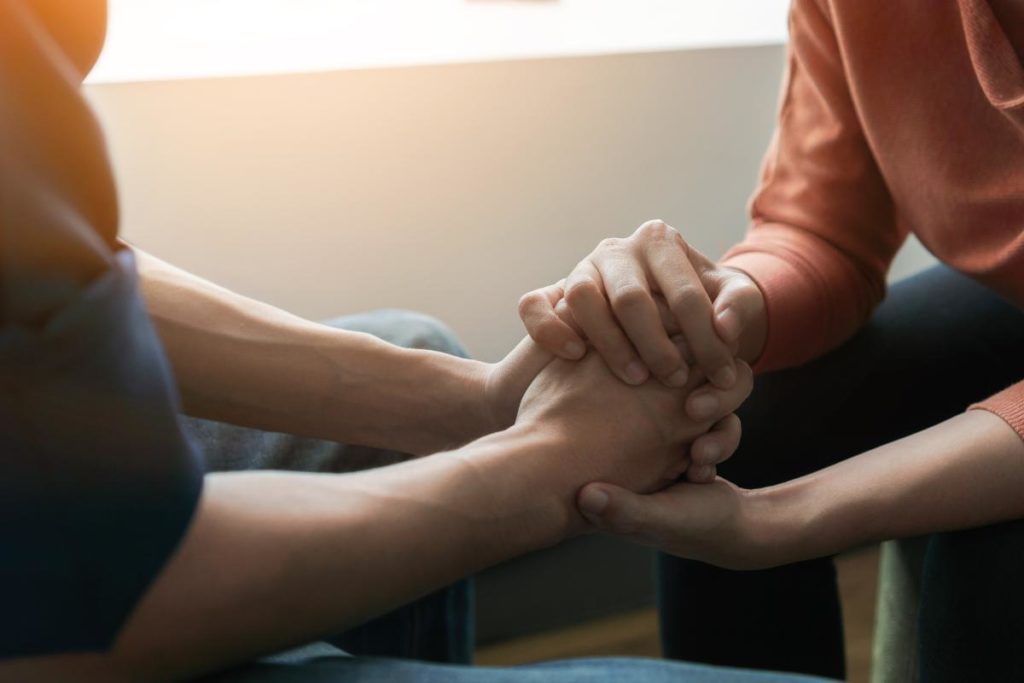If you have anxiety, you may already be familiar with panic attacks. These sudden, intense episodes of fear are accompanied by physical symptoms such as a rapid heartbeat and a feeling that you may pass out. Not all people with anxiety disorders experience panic attacks, and if they do, they may only be occasional episodes. Panic disorder, on the other hand, revolves mainly around panic attacks, with a person experiencing them more frequently, sometimes multiple times a day. While this condition can be debilitating, you can find relief with the help of a panic disorder treatment program.
At Ashwood Recovery, we understand the impact panic disorder can have on your life, but we can help you find relief from the nagging fear and worries. Reach out to us at 888.341.3607 to learn how our panic disorder treatment program can help you manage panic attacks and discover a calmer, happier life.
Spotting Signs of Panic Disorder
Anxiety and panic attacks often go hand in hand, and people can sometimes confuse one for the other. Both conditions involve excessive fears, worries, and feelings of unease. The main difference is that panic disorder is the most severe type of anxiety and is identified by its physical symptoms:
- Pounding heart
- Hyperventilation or difficulty breathing
- Chest pain and tightness
- Shaking or trembling
- Faintness or dizziness
- Nausea or stomach cramping
Panic disorder is also the most crippling form of anxiety as it can lead a person to extreme avoidance of panic disorder triggers. Their worlds may become very small as they attempt to protect themselves from anything that could trigger another panic attack. If you notice signs of panic disorder, learning to manage your triggers can allow for your best quality of life.
How to Manage Panic Disorder Triggers
Panic attacks can often seem as though they come out of the blue. You may detect a pattern if you think about what preceded the episode. Identifying your triggers can help you develop a plan for managing them:
- Stress – This is the top panic disorder trigger and one of the most difficult to avoid. To help decrease your risk for panic attacks, learn healthy ways to manage stress. Make any necessary changes in your life that are within your power. Try stress-reduction techniques like meditation, breathing exercises, qigong, tai chi, aromatherapy, and yoga. It does not matter what you use for stress relief (as long as it is not harmful, like self-medication), only that you pick something that resonates with you and helps you feel calmer and more relaxed.
- Substance use – One common method of dealing with panic disorder triggers is substance use. While drugs and alcohol can help numb your symptoms temporarily, they can worsen your symptoms in the long run. Plus, self-medication can lead to addiction, exacerbating your panic disorder and negatively impacting your entire life. Try cutting back on substance use or seeking addiction treatment if necessary.
- Social situations and crowds – Being in a crowded, noisy, or overly stimulating location can evoke anxiety and panic attacks in people with panic disorder. Your first instinct may be avoidance, but this only reinforces your fears and can limit your life enjoyment. Working with a therapist using cognitive-behavioral therapy and exposure therapy can help you overcome these fears and reduce the intensity of your anxiety.
The above are three of the most common panic disorder triggers, but you may also be triggered by caffeine, dehydration, or sugar. The resulting overstimulation, shakiness, and fluctuating blood sugar levels can quickly lead to anxiety and panic. Knowing your panic disorder triggers is helpful, but know that treatments are quite similar even if you are not fully aware of them all. You will benefit most from a combination of therapy, healthy lifestyle habits, stress reduction, and, in some cases, medication.
Find Relief with Panic Disorder Treatment at Ashwood Recovery
You no longer need to feel like a victim of panic attacks. Ashwood Recovery is here to help you find better ways to manage panic disorder triggers so that they do not interfere with your life satisfaction. Call us today at 888.341.3607 to enroll in our panic disorder treatment program.

